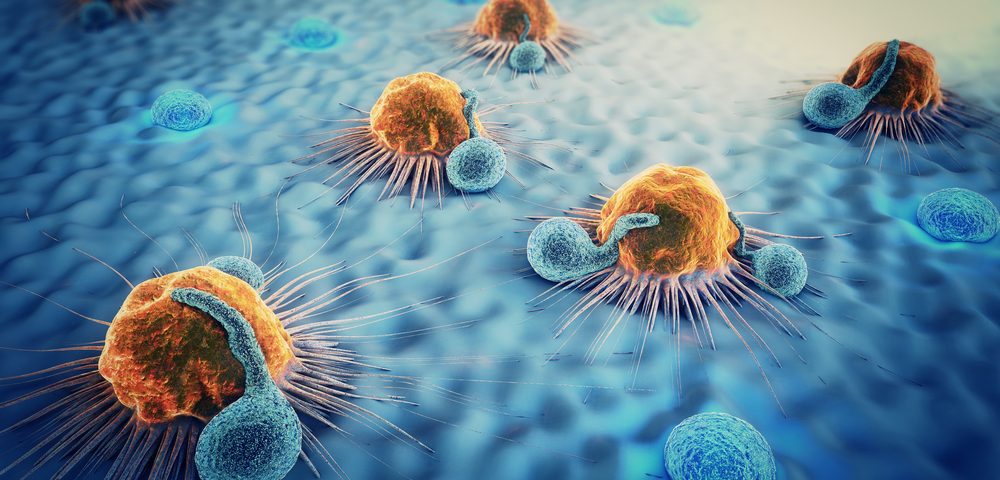The immune checkpoint inhibitor Bavencio (avelumab) failed to do a better job than the chemotherapy Taxotere (docetaxel) at improving lung cancer patients’ survival, a Phase 3 clinical trial shows.
Those in the trial have advanced non-small cell lung cancer, or NSCLC, that is unable to be removed surgically, has returned or has spread to other parts of the body.
Bavencio’s developers, Merck KGaA and Pfizer, said the result may be a consequence of about a fourth of patients in the chemotherapy arm crossing over to immune checkpoint inhibitors outside the study. This could have confound the survival findings, they said. The U.S. Food and Drug Administration has approved a number of immune checkpoint inhibitors besides Bavencio.
Bavencio improved patients’ survival, however. It prolonged by 33 percent the lives of patients with NSCLC whose tumors contained moderate-to-high levels of the PD-L1 protein associated with cancer. The figure was 41 percent for patients with high levels of PD-L1.
PD-L1 levels are usually a good predictor of patients’ responses to PD-1/PD-L1 inhibitors like Bavencio.
At least half of the cancer cells in patients with moderate-to-high levels of PD-L1 are producing this factor. At least 80 percent of cancer cells are producing it in patients with high PD-L1 levels.
“Avelumab’s overall clinical activity in this study supports its profile, with [the therapy achieving] expected efficacy across several endpoints and subgroups,” Dr. Luciano Rossetti, an executive vice president of Merck KGaA, said in a press release. He is global head of research and development in the company’s biopharmaceutical division.
“We are committed to understanding the data in the context of the subpopulations and the impact of access to other immune checkpoint inhibitors,” said Dr. Chris Boshoff, senior vice president and head of immuno-oncology, early development and translational oncology at Pfizer.
The Phase 3 JAVELIN Lung 200 trial (NCT02395172) included 792 patients with either advanced NSCLC in the lungs, cancer that had spread, or NSCLC that had returned. All had failed to respond to treatment with platinum-based chemotherapy.
Researchers conducted the trial at about 260 sites in North and South America, Asia, Africa, Australia, and Europe.
The study’s main goal was to see if Bavencio was better than Taxotere at extending survival in patients with tumors producing PD-L1. Secondary measures of Bavencio’s effectiveness included whether it could increase the time before patients’ disease progressed or they died, whether it could increase patients’ overall response to treatment, and whether it could improve their quality of life.
Although Bavencio failed to do better than Taxotere at increasing patients’ survival, it did improve survival in certain patient subpopulations, researchers said.
It was also safe, and patients tolerated it well.
The companies plan to present the latest results of JAVELIN Lung 200 at a conference and share them with regulatory agencies.
U.S. regulators have approved Bavencio for the treatment of bladder cancer and a rare skin cancer called Merkel cell carcinoma. It is also approved in Europe to treat Merkel cell carcinoma.


